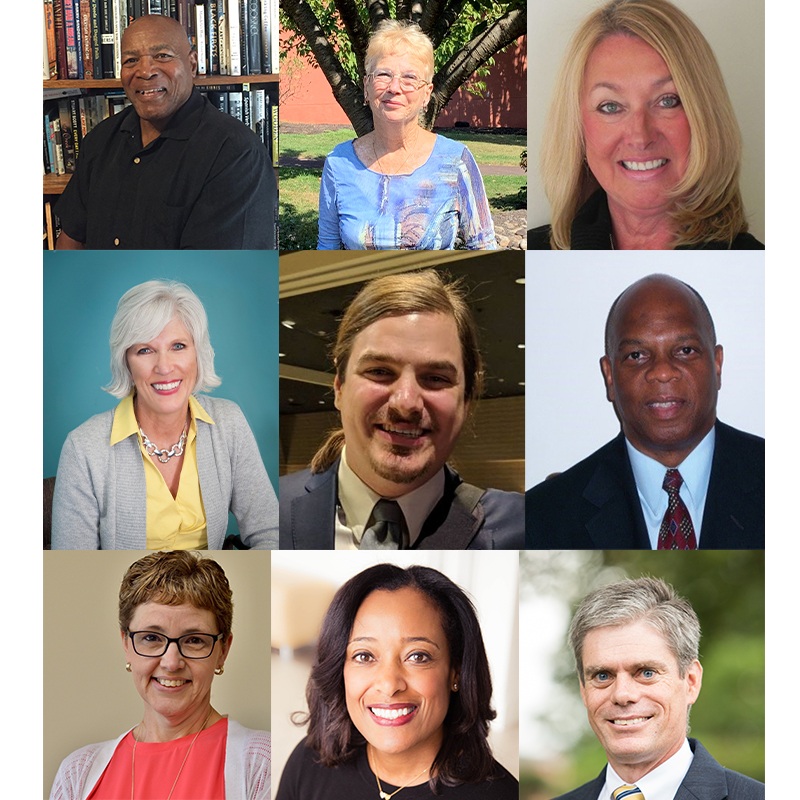A Time for Mourning, A Time to Refrain from Embracing…
June 5, 2020

Statement by the Cultural Humility Task Force of the Board of Directors, Bridge of Hope National
Ecclesiastes 3:1-8 reminds us that there is a time for everything. Today, we are in a time of mourning, a time of refraining from embracing, a time of throwing away. We mourn because the lives of George Floyd and Breonna Taylor and Ahmaud Arbery and so many others who are precious to God were taken from us too soon and too violently. We refrain from embracing because we are in the midst of an unprecedented global viral pandemic that has left few untouched, but which has also disproportionately impacted people of color across the United States. We throw away because the “normal” we crave to return to did not actually work for everyone equally.
At Bridge of Hope, we are committed to a journey of Cultural Humility. In 2015, the board of directors of Bridge of Hope National appointed a Cultural Humility Task Force. Cultural Humility is now deeply embedded in our strategic plan (2020-2023). Today, we publicly recommit ourselves to this work of cultural humility and encourage our 20 Bridge of Hope locations, neighboring volunteers, staff, board, and supporters to walk this journey alongside us so that we may learn together and hold each other accountable.
The three principles of Cultural Humility are:
- Commit to lifelong learning and critical self-reflection
- Recognize and change power imbalances for respectful relationships
- Create institutional accountability
Commitment to Lifelong Learning and Critical Self-Reflection
Before we can adequately respond to the impacts of racism in our society, we must first understand the history of slavery, segregation, and racism, and our own role in benefitting from and upholding these structures, or our role on the receiving end of such social injustice.
As a board, we have committed a significant portion of our meeting times to reading, watching, conversing and learning together from a variety of resources on social and economic justice issues related to issues of homelessness and housing in America. We have particularly focused on race as a social construct, racism in the church, housing discrimination and other societal factors that directly and indirectly impact homelessness. We invite you to join us in this conversation and to share the resources you find helpful.
Recognizing and Challenging Power Imbalances for Respectful Relationships
We commit to build partnerships that promote respect and economic and social justice. It has been said that racism is not the shark, it is the water. Racism is not the scary thing lurking in the shadows that will come out and get you when you least expect it, it is the very atmosphere that surrounds us all the time. To fully engage with our neighbors, we must recognize that who we are impacts the way we show up. Whether because of our race, our gender, our class, or a myriad of other factors, some of us hold privileges that create imbalances in who has power and who has access to power.
As we seek to walk together as neighbors in ending homelessness, it is essential to recognize the ways in which power imbalances impact our ability to truly connect with each other. The Neighboring Volunteer training developed in 2017 includes a significant focus on cultural humility. This posture invites others to teach us, empower others to speak their own story and to create their own future.
Institutional Accountability
Perhaps the most important tenet of Cultural Humility for a national body such as Bridge of Hope is the ability to be transparent in our aim to hold ourselves accountable to those we serve. While it is necessary and important to examine and work to change the various systems that lead to disproportionalities in who becomes homeless, such as the eviction epidemic, mass incarceration, or child welfare, we must ensure that we are not also contributing to inequitable outcomes. Do the families we serve match the population of families experiencing homelessness? Are people of different races served equally by our programming, or are there differences in outcomes based on race? Is our staff and board representative of the diversity of our communities and the people we serve?
In this regard, Bridge of Hope is intentionally striving to weave Cultural Humility into every critical area identified in our newly adopted strategic plan. We are committing to actionable, measurable goals to live out Cultural Humility and we seek to equip Bridge of Hope locations across the country with tools to promote racial and social equity in their services.
Our commitment and invitation:
As a national board, we recognize that there is much work to be done to get to the place that we desire to be on this journey. We take heart in being able to say that Bridge of Hope’s commitment to Cultural Humility is both ongoing and purposeful.
We commit to this work, and invite others to come to the table for this conversation amidst the immediate and overwhelming pain and social unrest in our nation today. We pledge to continue learning, self-reflecting, challenging power imbalances, and creating organizational accountability even when the current spotlight fades.
May this work usher in a time of dancing and embracing, and result in systems that truly represent and result in equitable opportunity for everyone.
